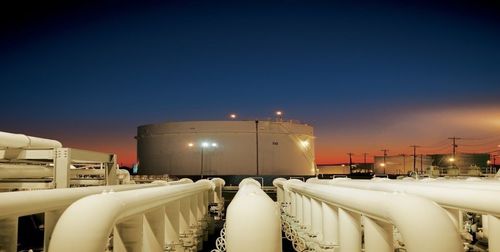FuelCell Energy, Inc. has closed on a project debt financing transaction with Liberty Bank and Amalgamated Bank as senior lenders and the Connecticut Green Bank as subordinated lender for its Connecticut Municipal Electric Energy Cooperative (CMEEC) fuel cell microgrid-ready project at the Naval Submarine Base New London, located in Groton, Connecticut (Groton Project).
Liberty Bank and Amalgamated Bank’s senior commitment totals $12m with a seven-year term and Connecticut Green Bank’s commitment totals $8m with a 20-year term, according to a news release.
According to SEC filings, the portion of the loan provided by Liberty will accrue at 6.75%, while the piece from Amalgamated Lender will accrue interest at 6.07% during all times at which a “Carbon Offset Event” is not continuing and 7.32% at all times at which a “Carbon Offset Event” has occurred and is continuing.
Michael Bishop, EVP and CFO of FuelCell Energy, said, “We are thrilled to enter into this long-term financing solution with this banking group. With its recurring revenue and cash flow profile, this fuel cell project allows for the efficient and cost-effective financing of our Company. In addition, we believe this financing further highlights financial institutions’ confidence in the demonstrated long-term performance of our globally deployed power platforms. Lastly, the long-term nature of the loan commitments allows the Company to confidently redeploy that capital in support of our growth initiatives.”
“The Connecticut Green Bank is proud to be part of the Groton Project. This strategically important project and our continued partnership with FuelCell Energy, Amalgamated Bank, and Liberty Bank exemplify how the green bank model works to leverage public dollars to attract multiples of local- and national-level private investment into clean energy infrastructure,” said Bert Hunter, Executive Vice President and Chief Investment Officer of the Connecticut Green Bank. “This also highlights the environmental, economic, and strategic value of distributed base load fuel cells, capable of operating as a microgrid, as a key to grid resilience, reliability, and energy security, especially for our nation’s military defense.”
“Liberty Bank is proud to support FuelCell Energy, Inc., a leader in the green energy industry, with project financing for the Groton Project to provide grid resilience for the local community and our nation’s military. Liberty Bank is committed to clean energy solutions partnering with The Connecticut Green Bank, who is a testament to the power of collective action in addressing the urgent challenge of providing sustainable energy sources to Connecticut,” said Daniel Longo, First Vice President of Liberty Bank.
William Peterson, SVP Senior Lending Officer & Director of Climate Lending of Amalgamated Bank, commented, “Our team’s significant experience in sustainable lending uniquely positioned Amalgamated to partner with Liberty Bank and the Connecticut Green Bank to underwrite FuelCell Energy’s project at the Naval Submarine Base as it further develops its power supply through sustainable energy. Sustainable lending is a critical and growing source of financing as the United States strives to achieve net-zero emissions across federal operations by 2050. Amalgamated’s team of recognized thought leaders and sustainable lending experts are excited by the opportunity to help combat climate change as we work to underwrite sustainable solutions and emerging technologies much like FuelCell Energy’s project with the U.S. Navy.”
Bishop concluded, “We believe that the commitment from these respected financial institutions demonstrate the financeability of the solutions FuelCell Energy is offering to customers like CMEEC, that are helping them achieve their decarbonization, resiliency and clean energy goals.”
Proceeds of this financing have been (i) redeployed to FuelCell Energy (ii) used to retire a $3m corporate credit facility with Connecticut Green Bank (iii) used to fund project reserves and (iv) pay transaction fees.






